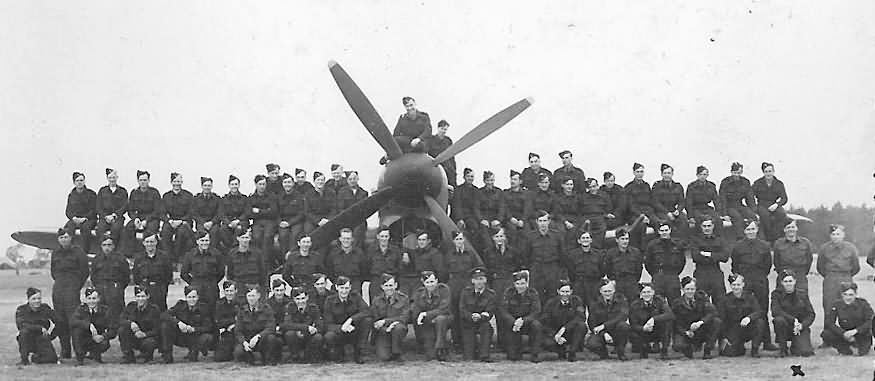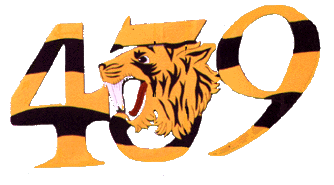|

For posterity, a
group shot of 439 Servicing Echelon. The "X" is believed to identify
Kingsley "ACK" Ackland
whose collection of photos
are featured throughout this website. The person with the officer's hat
(centre front row) is believed to be
F/O Bert Walsh,
the Squadron Engineering
Officer.
Unsung Heroes, 439's
ground crew working under the some of the most primitive of
conditions maintained a most enviable serviceability rate. As a result
not one operational mission was scrubbed or missed due to a lack of
serviceable aircraft.
Photo from the
collection of Kingsley Ackland and is provided courtesy of Brian
Ackland
Copyright
©2005
After
the enemy salient west of the Ruhr had been wiped out, the advance to the
Rhine began, the Canadian First Army and the American Ninth driving
converging pincers from north and south to meet at Geldern early in March.
Then, with Montgomery's Army Group drawn up along the Rhine, the final
preparations were made to cross that river and drive eastward to the Elbe.
The eight weeks from 1 February to 28 March were a period of unequalled
activity for the Typhoon wing at Eindhoven. No. 439 Squadron flew 860 hours
and 802 sorties on 129 operations, dropped almost 500 tons of bombs and
fired 40,000 cannon rounds. Until 23 March, nearly all the operations were
directed against rail lines or bridges; then close support tasks for the
Army predominated.
|
 Tiger
Squadron
.
.
Tiger
Squadron
.
.
 Tiger
Squadron
.
.
Tiger
Squadron
.
.